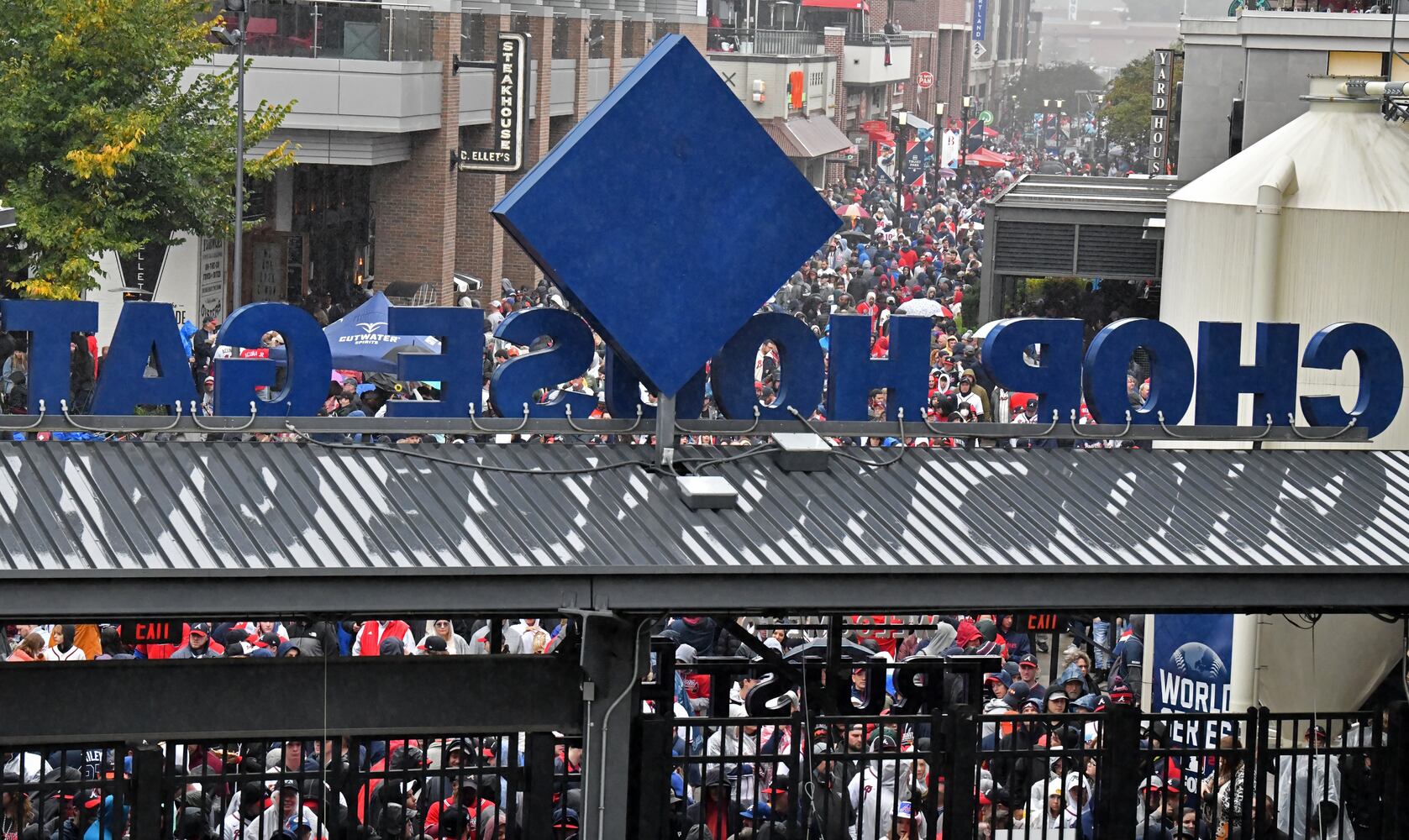The Braves will play their final home game of this special season Sunday night, Game 5 of the World Series, and almost all available tickets were priced above $1,000 on the secondary market as of Saturday.
The sticker-shock prices obviously haven’t deterred fans from attending the Braves’ first World Series since 1999. Former long-time Braves general manager John Schuerholz likened the fan fervor this postseason to the worst-to-first season of 1991, when the Braves reached the World Series for the first time since moving to Atlanta in 1966.
“It’s just like ‘91. It’s on fire,” Schuerholz said. “There (were) planeloads of Atlantans in Houston (for Games 1 and 2).”
On StubHub, the official fan-to-fan ticket marketplace partner of MLB, a 400-level seat high above the right-field corner for Sunday night’s game at Truist Park was listed at $1,099 ($1,351 with fees) as of Saturday. Some sellers were seeking more than $1,000 for standing-room-only tickets, and one was asking $15,000 apiece for front-row club seats directly behind home plate.
A spokeswoman for secondary-ticket marketplace TickPick said one buyer paid $34,629 for seven seats in the 200 level on the third-base side of the plate at Truist Park, $4,947 per seat.
The secondary-market prices for the games here have been the third-most expensive for any World Series at any venue, according to TicketIQ founder Jesse Lawrence. The most expensive World Series tickets were for, in order, the 2016 games at the Chicago Cubs’ Wrigley Field and the 2017 games at the Houston Astros’ Minute Maid Park, he said.
Secondary-market ticket prices can fluctuate frequently depending on supply and demand.
About the Author
Keep Reading
The Latest
Featured










